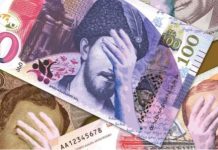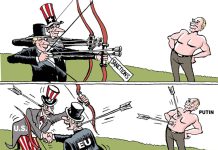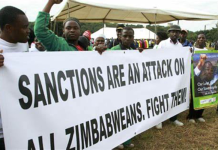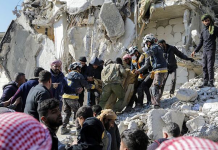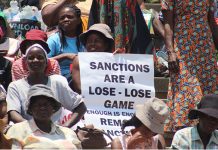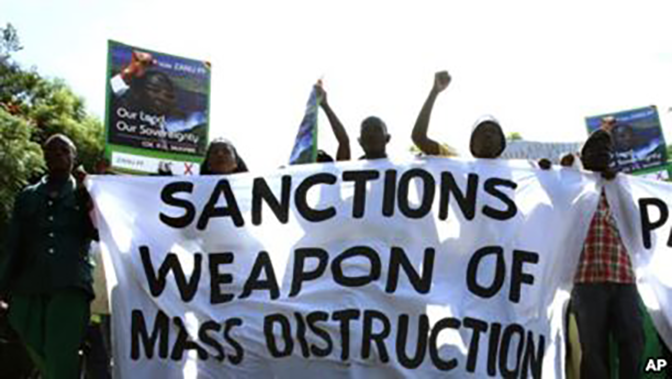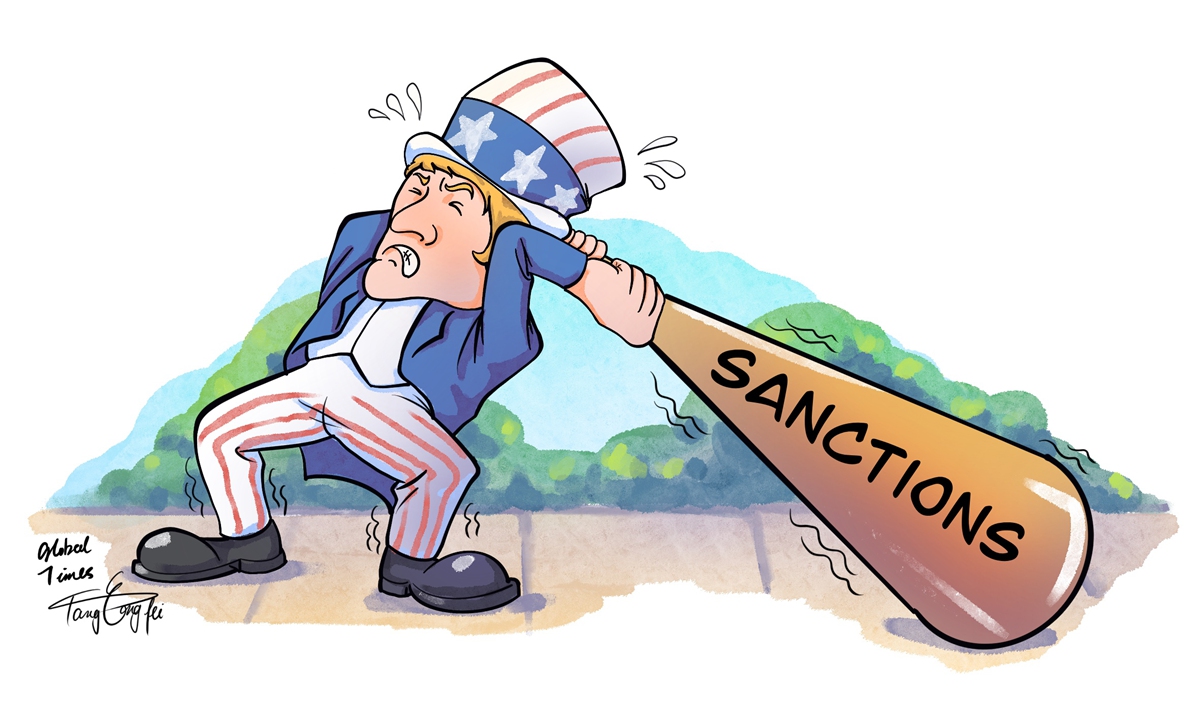
How can a country with a degree of democracy put sanctions on various countries resulting in wide impoverishment while it brags that it is spreading democracy and freedom worldwide?
A country that has the rule of capital as its main objective. True, there are other systems with negative characteristics.
But capitalism is inherently geared toward maintaining and expanding the rule of capital, in the bottom line.
The capitalist United States systematically imposes sanctions on countries branded as “evil doers,” causing grave harm in those countries. Often the most vulnerable people are targeted and are subjected to hardships and even starvation because of the sanctions, while governing elites remain in power.
Nowadays, the U.S. does not practice as much diplomacy as it does war-mongering.
Countries are demonized really because they want to take an alternative path in a multi-polar world as opposed to a bi-polar one, which the U.S. and its allies currently impose. The U.S. monetary empire cannot stand having a rival system that threatens its dominance in the world.
Agencies like the Treasury Department’s Office of Foreign Assets Control (OFAC) has imposed one-third of the sanctions worldwide.
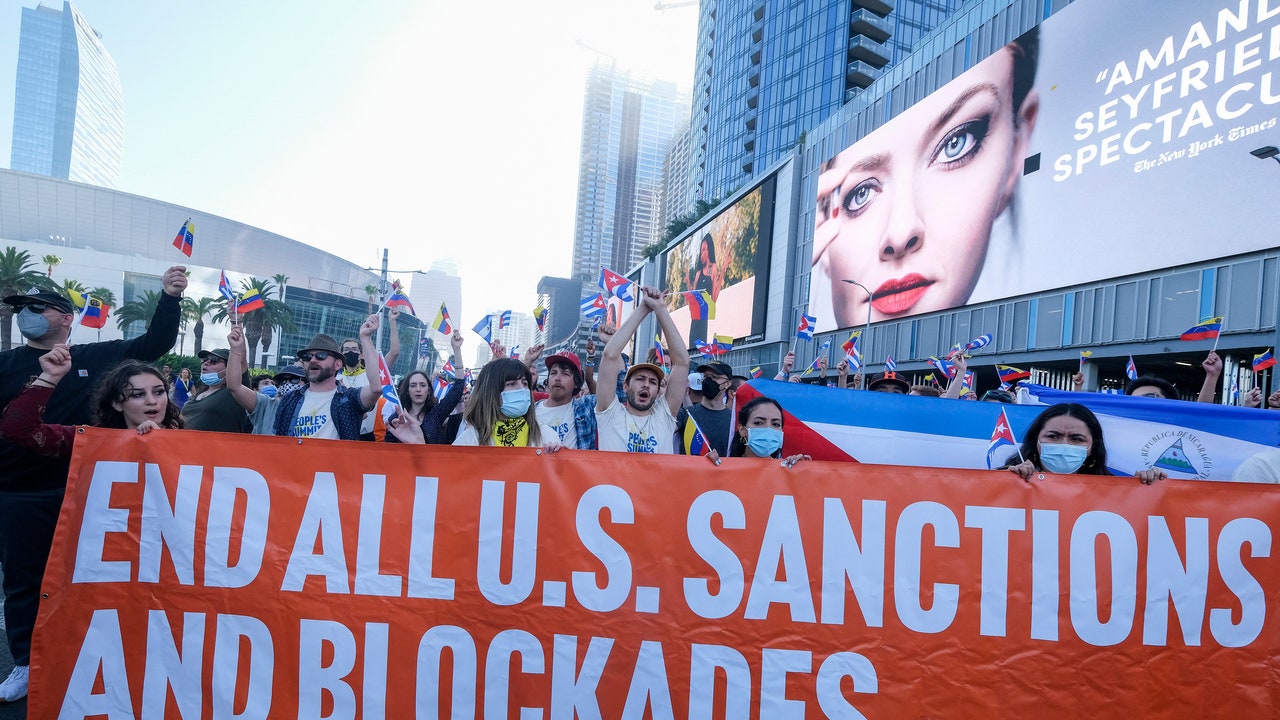
So, the U.S. is the country with the most sanctions. But who are the “evil doers?”
From Princeton University’s Research & Project Administration, here are examples:
- Cuba,
- North Korea (DPRK),
- Syria,
- Iran,
- Russia, and
- regions in Ukraine like Crimea, Donetsk and Luhansk.
Actions against the above: “Most transactions, including those involving persons or entities ‘ordinarily resident” require an OFAC License.
There are 18 countries listed including: the Democratic Republic of Congo (DRC), Lebanon, Belarus, Nicaragua, Venezuela, Ethiopia, Libya, Burma (Myanmar), Iraq, and Sudan.
Actions against the above: “Transactions related to activities with specific parties in these countries are prohibited.”
Afghanistan, Belarus, Russia, China (PRC), Cyprus, Iraq, Nicaragua, Eritrea, Ethiopia, Lebanon, North Korea (DPRK), Sudan, Zimbabwe, Burma (Myanmar), Cuba, Haiti, Somalia, Syria, Central African Republic, DRC, Iran, Libya, South Sudan, and Venezuela.
Actions against the above: “The U.S. Department of State prohibits the export of military/space equipment or technical data to these countries and to foreign nationals of these countries.”
As shown, some countries are in more than one category.
More specifically, here are examples of sanctions against the following countries:
Cuba
Cuba has been the victim of decades of sanctions, totaling about 64 years. The U.S. embargo, or El Bloqueo (the Blockade), as Cubans call it, has been morally bankrupt and a failure. If U.S. officials were truly concerned about the welfare of Cubans, the embargo would have been lifted long ago. Instead, it was tightened after the dissolution of the Soviet Union. It was, and is, a cruel set of actions to try to make Cuba subservient to the U.S., similar to pre-1959 Cuba.
The enforcement of sanctions has come in the form of several acts: the Trading with the Enemy Act of 1917; the Foreign Assistance Act of 1961; the Cuban Assets Control Regulations of 1963; the Cuban Democracy Act of 1992; the Helms-Burton Act of 1996; and the Trade Sanctions Reform and Export Enhancement Act of 2000.
The Foreign Assistance Act (FAA) and the Cuban Democracy Act (CDA) have, in particular, pretty-sounding names. But that is as far as it goes. The FAA spawned the United States Agency for International Development (USAID) which, despite the name, is a CIA front. The CDA contradicts democracy because, if it were actually about democracy, the embargo would have been lifted many years ago.
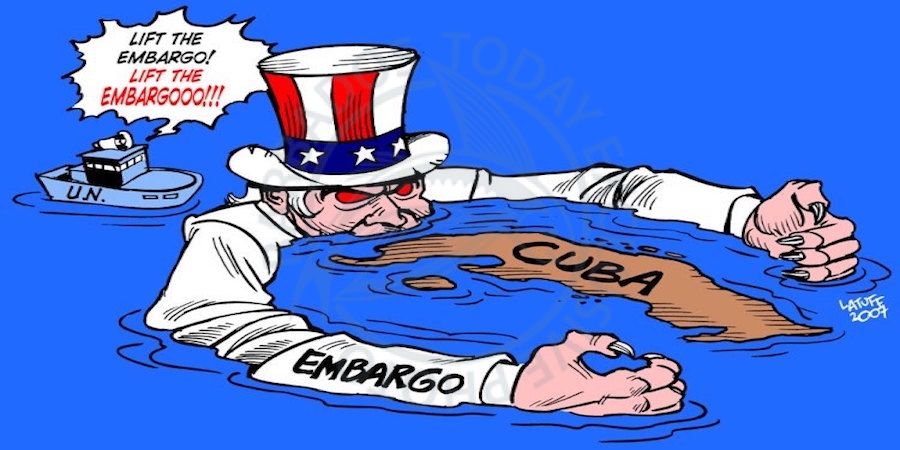
For 31 years, the UN General Assembly has annually voted overwhelmingly to lift the embargo. The most recent vote (November 2023) had 187 countries voting to lift it and just two countries voting to continue it, those countries being of course the United States and Israel. Ukraine abstained.
North Korea (DPRK)
With the 38th parallel dividing North Korea and South Korea (ROK), due to the Korean War, lasting from 1950 to 1953, it has been about 70 years since this alignment was established; and it has been impossible for the two Koreas to unite, mainly based on ideological differences. The U.S. has controlled the south while the USSR controlled the north. A demilitarization zone (DMZ) was established.
An agreement was made in 1948 whereby the U.S. and Soviet militaries would withdraw from both Koreas after five years. The U.S., however, left military advisers in the south, and eventually reoccupied it.
The West has consistently claimed that the DPRK wants to invade the ROK in an attempt at reunification. So, the DPRK is seen as the “aggressor.” The reality, however, is more complicated.
The DPRK, led by Kim Il Sung, and the ROK, led by Syngman Rhee, both considered civil war to unify the peninsula. But it was not the DPRK which began drawing up battle plans for another war. It was the ROK. Nevertheless, the DPRK was still interested in reunification.
In 1994, an agreement was signed to reduce the hostility between the DPRK and the U.S. It was the U.S.-DPRK Agreed Framework, with conditions that were not favorable to the DPRK. It was to close down its nuclear facilities and have IAEA inspections. The U.S. failed to honor the agreement. There were still military threats and trade and economic barriers.
The sanctions imposed against the DPRK are as follows: Trade restricted to food, medicine and other humanitarian necessities, but require a license; imports from the DPRK have been prohibited starting in 2011; arms sales and arms transfers are fully prohibited; financial transactions are prohibited; new U.S. investment is prohibited; U.S. foreign aid is minimal, except for those “fleeing” the DPRK; U.S.-based assets are blocked; Kim Jong Un and the Korean Workers’ Party are identified as being involved in illicit and punishable activities: U.S. travel requires a special valid passport.
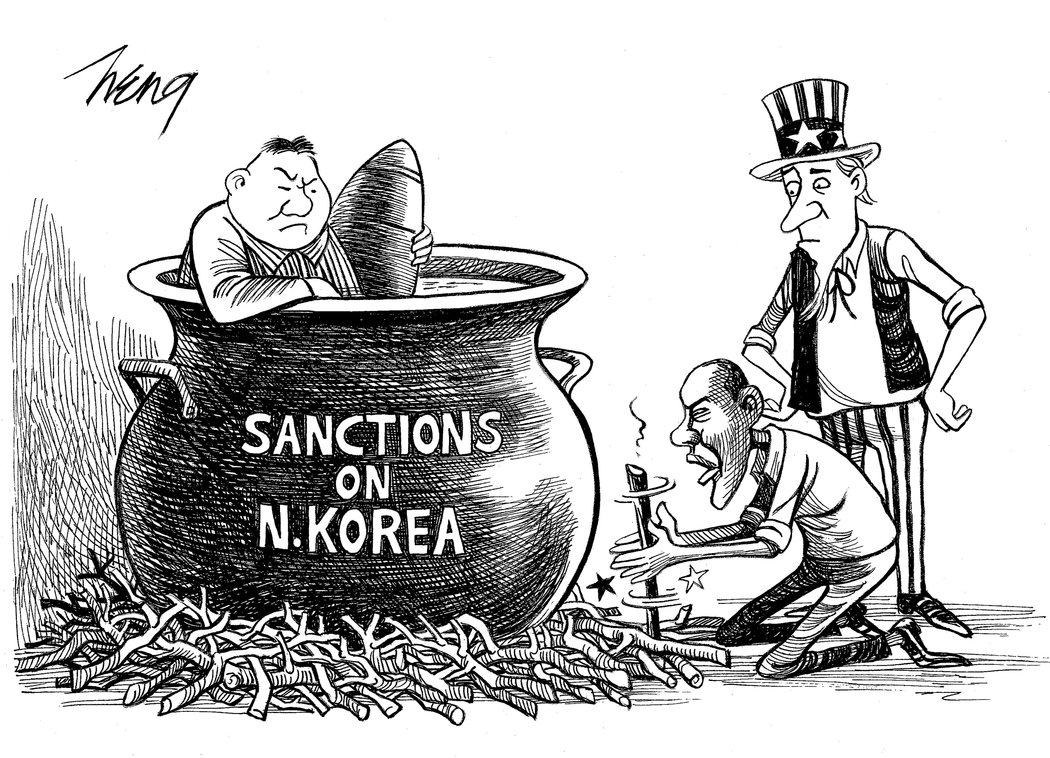
With these sanctions, the U.S. Empire is practicing overkill. It is the usual hostility against an “evil-doer.”
Russia
Like other “enemies,” Russia is portrayed as being “evil.” Ideally speaking, its invasion of Ukraine is violating international law. But, since the change of the international situation in 1991, with the dissolution of the USSR, tragic changes took place in the former Soviet republics. Instead of democratic reforms that would have complimented socialism, capitalist shock-therapy economics was imposed causing tragedy and suffering among the Soviet population. Since then, Russia has been on the defensive, with the U.S./NATO alliance expanding to its borders with weapons pointed at it.
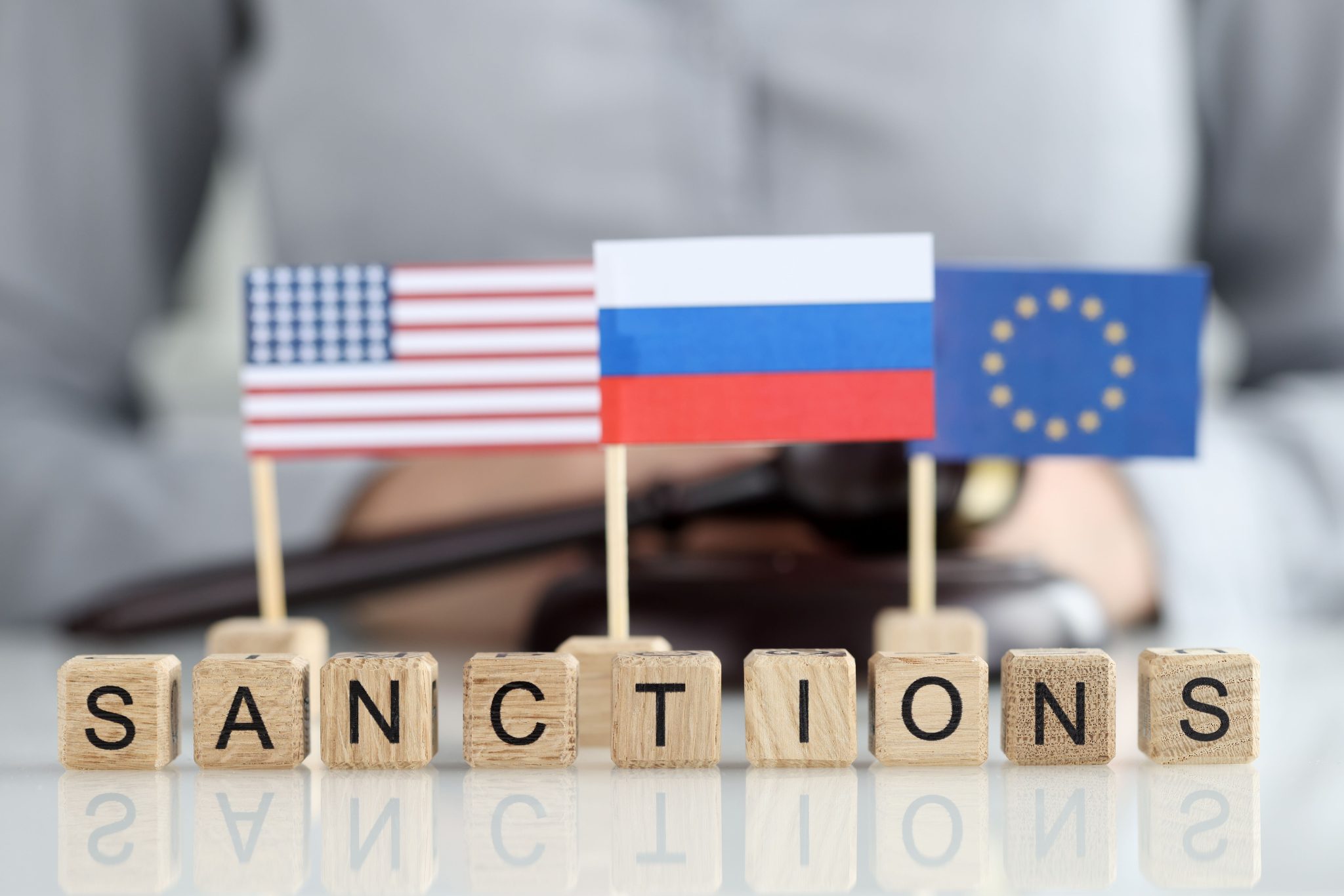
Recent history shows that there was a U.S.-backed coup in Ukraine in 2014. In the Donbas and Crimea, where the Black Sea fleet is located, many ethnic Russians were attacked because they were Russian. The attackers included Ukrainian Nazis who committed war crimes, resulting in the deaths of 14,000 ethnic Russians. In response, Russia invaded the Donbas and Crimea, not wanting to lose the Black Sea fleet. There were referenda in both regions, and majorities voted to separate from Ukraine.
Still, the Ukrainian military, which includes the Azov Battalion, a Nazi group, continued to attack those regions. In February 2022, Russia added more troops to its invasion in the Donbas and Crimea, among other areas, to battle the Ukrainian military. It has been a tragic affair, with many Ukrainians and Russians dying.
There was a chance for negotiations, but the alliance put a stop to that. For example, former British PM Boris Johnson visited Kyiv and talked to Ukraine’s President Volodymyr Zelensky. Johnson persuaded him not to negotiate. Thus, more weapons were sent to Ukraine by the alliance.
The U.S. Empire acted quickly, putting sanctions on Russia. The majority of sanctions began in 2014, with Russia’s invasion. Examples of the sanctions are as follows, enacted with executive orders by President Barack Obama:
Executive Order 13660—“Targets those responsible for undermining Ukraine’s democracy and threatens its peace.”
E.O. 13661—“Targets Russian officials operating in the arms sector, as well as entities they own and control.”
E.O. 13662—“Targets entities and individuals operating in Russia’s financial services, energy and defense sectors.”
E.O. 13685—“Prohibits U.S. business or investment in occupied Crimea.”
Given U.S. imperialism, these sanctions are the height of hypocrisy. Further, the U.S./NATO alliance is trying to turn Ukraine into a market satellite assisted by a willing Ukrainian government whose president, Zelensky, is a neo-liberal. The idea is to take advantage of cheap Ukrainian labor.
Venezuela
The reaction by right-wing/fascist Venezuelans and their “sugar daddy,” the U.S., toward the Venezuelan presidential election is typically arrogant and pretentious outrage. A statement by Venezuelanalysis sums it up:
“For more than 25 years, The U.S. has been hellbent on overthrowing the Bolivarian Revolution. Unable to see its surrogates succeed at the polls or trigger an outright coup, Washington settled on a weapon of choice: economic sanctions.”
Visa Restrictions—“Since FY 2018, the State Department has imposed visa restrictions related to corruption or human rights abuses…the State Department has also privately revoked the visas of Venezuelans, including those of current Venezuelan officials and their families.”
Terrorism-Related Sanctions—“Since 2006, the Secretary of State has made annual determination that Venezuela is not ‘cooperating fully with United States anti-terrorism efforts’…the United States has prohibited all U.S. commercial arms sales and transfers to Venezuela.”
Drug Traffic-Related Sanctions—“Treasury has imposed asset-blocking sanctions on 11 individuals and 25 companies with connections to Venezuela by designating them as Specially Designated Narcotics Traffickers…”
Targeted Sanctions Related to Antidemocratic Actions, Human Rights violations, and Corruption—“In response to increasing repression in Venezuela, Congress enacted the Venezuela Defense of Human Rights and Civil Society Act of 2014. [T]he law required the President to impose sanctions on those responsible for significant acts of violence, human rights abuses, or antidemocratic actions.”
For the last sentence, those acts in reality are the handiwork of U.S.-backed right-wing/fascists. They are the main instigators of violence. But the U.S. would call them “pro-democracy demonstrators.” Again, the hypocrisy.
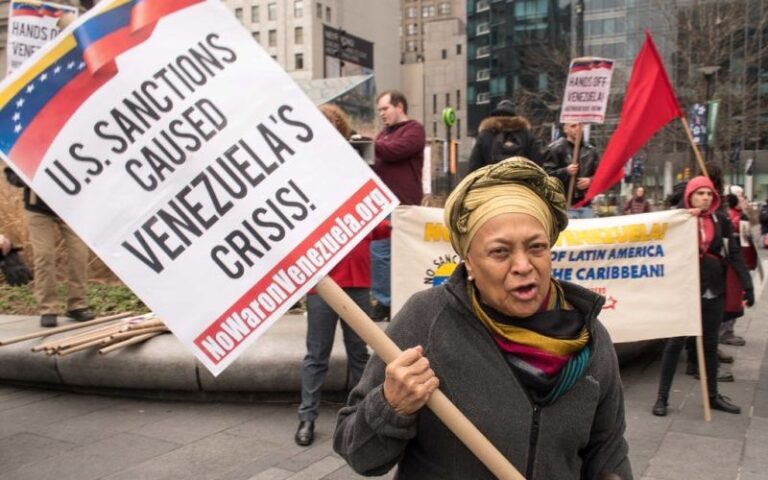
Former UN Independent Expert on International Order Alfred de Zayas wrote a piece in CounterPunch that condemns the U.S. Empire’s own terrorism:
“In the US State Department’s toolkit, unilateral coercive measures (UCMs) are used to blackmail, bully and intimidate States that do not readily accept US hegemony. Placing a country in the US list of countries sponsors for terrorism is intended to lend some phony legitimacy to UCMs imposed against targeted States.”

In some of his writings, De Zayas has also emphasized the devastating humanitarian consequences of U.S. sanctions as a mode of economic warfare and the potential that they could lead to outright war if not regime change.
U.S. social movements ought to do more to publicize the terrible costs and illegitimacy of U.S. sanctions and to mount more effective campaigns to try and curtail them.
College protesters focused on the Israeli genocide in Gaza would do well to try and help raise awareness about additional government policies that cause harm around the world, including by contributing to the death and malnutrition of children.

CovertAction Magazine is made possible by subscriptions, orders and donations from readers like you.
Blow the Whistle on U.S. Imperialism
Click the whistle and donate
When you donate to CovertAction Magazine, you are supporting investigative journalism. Your contributions go directly to supporting the development, production, editing, and dissemination of the Magazine.
CovertAction Magazine does not receive corporate or government sponsorship. Yet, we hold a steadfast commitment to providing compensation for writers, editorial and technical support. Your support helps facilitate this compensation as well as increase the caliber of this work.
Please make a donation by clicking on the donate logo above and enter the amount and your credit or debit card information.
CovertAction Institute, Inc. (CAI) is a 501(c)(3) non-profit organization and your gift is tax-deductible for federal income purposes. CAI’s tax-exempt ID number is 87-2461683.
We sincerely thank you for your support.
Disclaimer: The contents of this article are the sole responsibility of the author(s). CovertAction Institute, Inc. (CAI), including its Board of Directors (BD), Editorial Board (EB), Advisory Board (AB), staff, volunteers and its projects (including CovertAction Magazine) are not responsible for any inaccurate or incorrect statement in this article. This article also does not necessarily represent the views the BD, the EB, the AB, staff, volunteers, or any members of its projects.
Differing viewpoints: CAM publishes articles with differing viewpoints in an effort to nurture vibrant debate and thoughtful critical analysis. Feel free to comment on the articles in the comment section and/or send your letters to the Editors, which we will publish in the Letters column.
Copyrighted Material: This web site may contain copyrighted material the use of which has not always been specifically authorized by the copyright owner. As a not-for-profit charitable organization incorporated in the State of New York, we are making such material available in an effort to advance the understanding of humanity’s problems and hopefully to help find solutions for those problems. We believe this constitutes a ‘fair use’ of any such copyrighted material as provided for in section 107 of the US Copyright Law. You can read more about ‘fair use’ and US Copyright Law at the Legal Information Institute of Cornell Law School.
Republishing: CovertAction Magazine (CAM) grants permission to cross-post CAM articles on not-for-profit community internet sites as long as the source is acknowledged together with a hyperlink to the original CovertAction Magazine article. Also, kindly let us know at info@CovertActionMagazine.com. For publication of CAM articles in print or other forms including commercial internet sites, contact: info@CovertActionMagazine.com.
By using this site, you agree to these terms above.
About the Author

David Starr acknowledged his interest in politics in 1986 when he lived in Hawai’i.
From there, he became active, joining such groups as the Latin American and Caribbean Solidarity Association (LACASA), the Hawai’i Union of Socialists (HUS) and Ka Lehui Hawai’i (The Hawaiian Nation).
Starr also created a publication entitled Voices of Change, and had articles published in the Honolulu Weekly and Toward Freedom during the 1990s.
Now Connecticut-based, Starr has published many pieces in Reader Supported News, the Daily Kos, and has been published in the LA Progressive.
David can be reached at dl_starr@hotmail.com.

